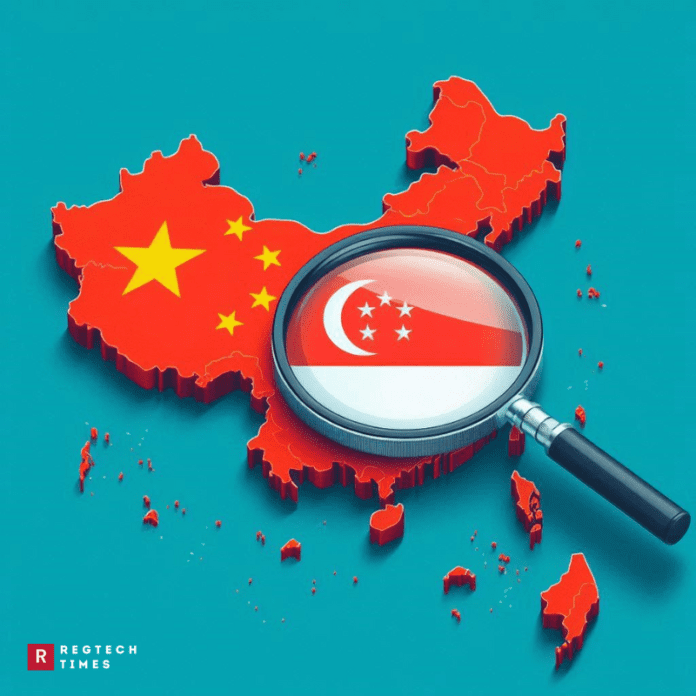Singapore has taken a significant step in its fight against foreign interference. The country’s home affairs ministry has invoked a law on foreign interference against representative of Chinese Copper King, Philip Chan Man Ping , making him the first Singapore citizen to be tagged as a “politically significant person.” Chan manages a multimillion-dollar property portfolio for a Chinese metal billionaire, raising concerns about his influence and activities.
The Foreign Interference Law
Philip Chan Man Ping, a 59-year-old property-industry veteran, oversees the real estate investment arm of a copper conglomerate owned by a Chinese billionaire. The Singapore government believes that Chan has shown susceptibility to foreign influence and willingness to advance their interests. This decision came after assessing Chan’s activities, which were deemed to have political implications in Singapore.
Chan was informed on February 2 about the plans to designate him as a “politically significant person.” This designation requires him to disclose political donations of S$10,000 ($7,440) or more annually, declare foreign affiliations, and any migration benefits. Chan has two weeks from the notice to appeal the decision directly to the home affairs minister.
A Prominent Figure
Chan, born in Hong Kong, has lived in Singapore for over thirty years. He is the managing director of Wen Way Investments Pte, the property unit of Amer International Group Co., a Fortune Global 500 firm based in Shenzhen. Amer, known for its copper mining, processing, and trading, is owned by a Chinese billionaire dubbed “China’s copper king.”
Wen Way Investments, co-founded by Chan in 2012, has amassed a property portfolio in Singapore worth about S$200 million. This includes high-profile properties like the retail section of The Sail at Marina Bay and shops in Far East Plaza. Amer’s presence in Singapore also includes the top three floors of 20 Collyer Quay, an office building owned by its commodities trading subsidiary, Awin Resource International Pte. He is better known as Copper King.
Community and Business Ties
Chan is also the CEO of C & H Properties Pte, a real estate agency in Singapore. Amer acquired a majority stake in this firm in 2013. Chan’s wife, who co-founded Amer and holds Singapore citizenship, also plays a significant role in their property investments.
Beyond his business endeavors, Chan has been actively involved in community and business organizations. Since 2011, he has served as the president of the Kowloon Club, a support group for immigrants from Hong Kong. He has also interacted with local politicians and penned columns for a local newspaper before he became Copper King.
Chinese Espionage: 19 Land Parcels Near US Military Bases Pose National Security Threat
Chan has established other ventures aimed at fostering understanding between China and Southeast Asian communities. He founded Mutual Benefits Realty Pte in 2010, focusing on serving high-net-worth clients from China. He also started an education consultancy called “China Link” in 2020 to promote Chinese culture and traditions.
Reaction and Response
The news of Chan’s designation has stirred reactions. The People’s Association confirmed that Copper King has stepped down from all grassroots appointments. The Hong Kong Singapore Business Association announced Chan’s resignation as president, effective February 2. Chan’s activities and advocacy have attracted attention before. In 2019, he received a warning from the police for hosting an illegal public gathering to support Hong Kong authorities during mass protests.
Chilling Chinese Espionage Plot Erupts at Hotel in Alps Near F-35 Facility
Chan has expressed confusion about the designation. In a response to a local newspaper, he said he was unaware of the reasons behind the notice and planned to understand the law before responding.
Singapore’s decision to tag Chan as a politically significant person reflects its stance against foreign interference. The country has also passed a new law to screen investments in sectors critical to national interests more closely. Critics argue that these measures give the government broad powers to target dissent and promote self-censorship. However, Singapore maintains that these laws are essential to protect its sovereignty and national security.
Venture Capitalists Under Siege: US Tech Companies Face Chinese Espionage Threats
Copper King’s case marks a significant moment in Singapore’s efforts to safeguard against foreign influence. It underscores the government’s vigilance in ensuring that its political and economic landscapes remain free from external manipulation.


